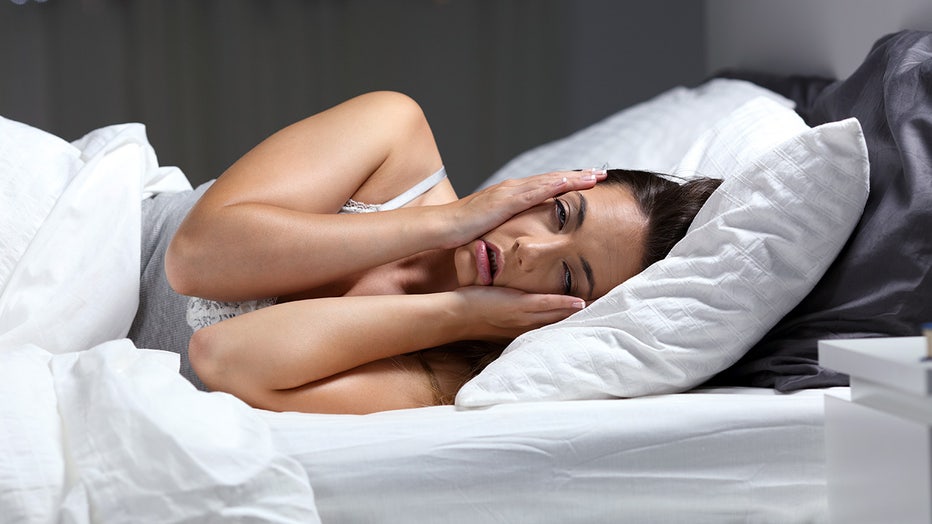Daylight saving time: How springing forward could affect your health
Daylight Saving Time comes with health risks
Millions of Georgians will "Spring Forward," setting their clocks an hour ahead. But researchers have found that losing an hour of sleep can increase the risk for health issues, like heart attacks or sleep-related car accidents. The FOX Medical Team has more.
Most of the United States will "spring forward" Sunday for daylight saving time and lose an extra hour of sleep.
This can leave many Americans tired and even cranky the next day. But, it could also negatively impact a person’s health.
According to experts, darker mornings and lighter evenings can disrupt the body’s internal clock and cause sleep trouble for weeks or even longer.
"Not unlike when one travels across many time zones, how long it can take is very different for different people," Dr. Eduardo Sanchez of the American Heart Association told the Associated Press. "Understand that your body is transitioning."
Heart attacks, car crashes increase after daylight saving time
Previous studies have even found an uptick in heart attacks and strokes after the March time change. The American Heart Association points to studies that suggest an uptick in heart attacks on the Monday after daylight saving time begins, and in strokes for two days afterward.
In addition, fatal car crashes temporarily jump the first few days after the spring time change, according to a study of U.S. traffic fatalities. The risk was highest in the morning, and researchers attributed it to sleep deprivation.
Dr. Hitendra Patel, medical director of the Sleep Program at Wellstar Health System in Georgia, told FOX 5 Atlanta that Americans should brace themselves because suddenly losing an hour of sleep can be risky.
"Heart attacks increase, literally, in the day after the time change, and also the risk of car accidents as well," Patel explained. "So, people's health is at risk. Primarily, it is sleepiness, really."
How to prepare for daylight saving time
Some health groups, including the American Medical Association and American Academy of Sleep Medicine, have said it's time to do away with time switches and that sticking with standard time year-round aligns better with the sun — and human biology.
But until this happens, experts suggest getting to bed a little earlier in the days leading up to Daylight Saving Time to help gradually adjust to the time change.
"Stay active, maintain a regular exercise pattern or routine," Patel added. "Try to avoid exercise late at night. Especially if a person is having difficulty sleeping, exercise earlier in the day."

(File: AntonioGuillem / iStock / Getty Images Plus)
Patel also suggested cutting back on excessive drinking.
"Alcohol in general destroys sleep, especially if you drink it closer to bedtime," he said. "You really decimate your sleep quality." If you want a drink, he said, have it earlier in the evening.
And then, when it is time to sleep, and you need to wind down, turn down the lights. Evening light from phones and other electronic devices can make adjusting to an earlier bedtime even harder.
RELATED: Daylight saving time 2024: When is it and what to know about springing forward
"Avoid bright light exposure, gadgets, screens," Patel said. "Limit screen time. Wind-down time, that's the thing I would recommend.
And when you wake up, experts recommend going outside.
"Every day, when you wake up, make sure you get out into the bright sunlight for 20 to 30 minutes," Patel continued. "Morning sun is critical to our biological clock, from the sleep-wake perspective."
When is Daylight saving time 2024?
The transition to daylight saving time is official at 2 a.m. Sunday, March 10, across much of the country.
RELATED: Sleep specialist shares tips to ease the 'spring forward' time change
Then on March 19, winter sunsets and the spring season begins.
Which states don’t observe Daylight Saving Time?
Daylight Saving Time happens in the vast majority of the United States, but not everywhere.
No time change is observed in Hawaii, most of Arizona, Puerto Rico, the U.S. Virgin Islands, American Samoa, Guam and the Northern Marianas.
This story was reported from Los Angeles. The Associated Press, FOX 5 Atlanta contributed.

